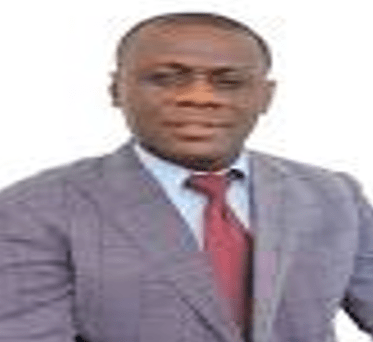By Samuel Lartey (Prof.)
Leadership in any society shapes the trajectory of businesses, communities, and entire nations. Yet, when leadership falters, as it often does, especially in contexts where accountability is weak, a void emerges. Ghana, like many other nations, has experienced this leadership vacuum firsthand, marked by economic instability, social unrest, and a widespread loss of trust in both political and corporate institutions.
Between 2017 and 2023, Ghana’s economy has faced significant setbacks, including surging inflation, unsustainable debt levels, and a shrinking sense of national confidence in the future. By mid-2024, Ghana’s debt had ballooned to GH₵575 billion, representing more than 85% of GDP, and the country was grappling with inflation rates as high as 42.5%, up from 10.4% in 2019. These numbers reflect more than just economic mismanagement they are the symptoms of a deep-rooted leadership crisis that spans decades.
At the heart of this crisis is a critical disconnect between leaders and those they serve, be it in government or business. This leadership void, characterised by inaction, indecisiveness, and a failure to inspire trust, has left citizens and employees questioning the future. However, leadership when executed with integrity, accountability, and foresight has the power to transform this bleak outlook into one of hope and sustainability.
Understanding the Leadership Void
Leadership is more than occupying a title or wielding authority. True leadership requires vision, decisiveness, and the ability to inspire others toward a shared goal. Yet, across Ghana’s political and corporate ecosystems, there is an alarming trend of leaders failing to live up to these ideals.
Often, leaders act as though they are above the systems they govern or manage, abusing their positions for personal gain and, when caught, resorting to public apologies and pleas for forgiveness. This pattern creates a leadership void a gap where responsibility and accountability should exist, but often don’t.
This void is evident in both the public and private sectors. In Ghana’s corporate world, leadership failures contributed to the collapse of 23 savings and loans companies and 400 microfinance institutions between 2017 and 2020, resulting in billions of cedis in lost savings and investments.
The financial sector clean-up, necessary as it was, cost the government GH₵21 billion, a debt burden that continues to weigh heavily on the national budget. This crisis could have been avoided had there been stronger regulatory oversight, ethical leadership, and proactive decision-making. Instead, inaction and negligence led to the loss of livelihoods, the erosion of public trust in financial institutions, and an enduring economic impact on the nation.
In the political sphere, the leadership void manifests through indecisiveness and a lack of long-term planning. The Free SHS policy introduced in 2017, though noble in its intent to expand access to education, has struggled with financial sustainability. By 2023, the program faced funding shortfalls, overcrowded schools, and questions about its long-term viability.
Leadership failures in planning and resource allocation have tarnished what should have been a landmark achievement, casting doubt on the country’s ability to maintain such initiatives in the future.
The Power of Leadership Choices
Whether in business or public service, leadership is defined by the choices made or not made. Every action and inaction, every word spoken or left unsaid, shapes the future of a business, a community, or a nation. Leaders who fail to act when required or remain silent in the face of injustice contribute to the very crises they later claim to fight. Inaction and indecisiveness breed instability, and silence, when a voice is needed, can have lasting negative consequences.
A case in point is the 2020 financial sector reforms, where the failure to act sooner resulted in a nationwide banking crisis. By waiting too long to address the underlying issues, leadership allowed the situation to spiral out of control, resulting in a costly clean-up that further strained the national economy. Had action been taken earlier, the collapse of multiple institutions and the subsequent loss of confidence in the financial sector could have been mitigated.
Leadership is not simply about steering through crises but anticipating them. The Eurobond Debt Exchange Program in 2023 was meant to stabilise Ghana’s fiscal position, but the program’s success depended on effective leadership in both implementation and communication.
Unfortunately, despite the introduction of the program, investor confidence remained shaky, as leaders failed to provide the transparency and accountability required to install trust. The consequences of inaction were felt across the country as inflation continued to rise, and citizens bore the brunt of economic hardship.
The Power of Integrity
One of the most significant challenges facing leaders in Ghana today is the negative perception that they abuse their positions of power for personal gain. Public trust in government is at an all-time low, with over 65% of Ghanaians surveyed in a 2023 Afrobarometer report stating that they believe the country is heading in the wrong direction.
Corruption scandals, such as the Agyapa Royalties deal and the PDS electricity concession, have only served to reinforce these perceptions, leading to widespread cynicism about leadership.
The solution to this crisis of confidence lies in leadership rooted in integrity and transparency. Leaders in both the public and private sectors must be willing to take responsibility for their actions, make decisions in the best interests of the people they serve, and uphold the values of fairness and justice. Diffusing negative perceptions requires a shift away from the mentality of “forgive and forget” to one of “lead and be accountable.”
In business, this means adopting ethical practices, fostering transparency, and prioritizing long-term success over short-term profits. The collapse of Ghanaian businesses such as UT Bank and Capital Bank serves as stark reminders of what happens when leadership becomes complacent and priorities personal gain over corporate responsibility. In public service, it means leaders must actively engage with citizens, listen to their concerns, and address them with tangible solutions rather than empty promises.
Association of leaders
In Ghana, the association of security officers with ruling political parties has proven to be more detrimental than beneficial to national security and stability. While some argue that aligning security forces with the government of the day ensures smoother coordination in maintaining law and order, the evidence suggests that such associations often undermine the impartiality and professionalism of the security apparatus.
For example, during the 2020 general elections, several incidents involving security personnel were linked to political parties, resulting in biased enforcement of the law and contributing to public distrust in the security system. The Ayawaso West Wuogon by-election violence in 2019 also highlighted the dangerous consequences of politicised security forces, where reports of excessive force led to widespread condemnation and further eroded confidence in their neutrality.
A 2021 Afrobarometer survey found that 72% of Ghanaians were concerned about the influence of political parties on security forces, believing it weakens the rule of law and exacerbates the leadership void in the country.
Financially, while the 2022 national budget allocated GH₵1.5 billion to national security agencies, the lack of impartiality in enforcement diminishes the return on such investments, as the politicization of security forces can escalate tensions and lead to instability, rather than fostering genuine national security. To ensure long-term stability, security heads must remain neutral, upholding the rule of law without bias toward ruling political parties, thereby strengthening public trust and reinforcing national cohesion.
Leadership is Struggling
The leadership challenges Ghana faces today are not new, but they are becoming more acute. From independence in 1957 to the present, Ghana has experienced a series of leadership changes, each promising a better future for the country. However, many of these promises have remained unfulfilled, leaving citizens disillusioned and skeptical about the prospects of lasting change. For example, while the Ghana Beyond Aid vision presents an ambitious blueprint for economic self-reliance, the country remains heavily dependent on external borrowing.
By mid-2024, Ghana’s external debt was over US$32 billion, with debt servicing consuming nearly 50% of government revenues. This unsustainable debt trajectory, coupled with widespread unemployment and a shrinking manufacturing sector, has made it difficult for leaders to inspire confidence in the future.
The reality is that leadership in Ghana has often been reactive rather than proactive. Economic policies are made in response to crises rather than as part of a long-term strategy for national development.
This short-termism has left Ghana vulnerable to external shocks, such as fluctuations in global commodity prices, which further destabilise the economy. Leadership must evolve from managing crises to preventing them, and this requires visionary leaders who can look beyond the next election cycle.
Conclusion
In the face of these challenges, it is easy to place the blame on those at the top. However, leadership is not confined to the upper echelons of government or business. True leadership begins with you—whether in your home, your business, or your community. The actions you take, the choices you make, and the voice you raise all contribute to filling the leadership void.
As Ghana looks to the future, the country needs leaders who are willing to make tough decisions, embrace accountability, and prioritise the long-term well-being of the nation over personal gain. Leadership is not about avoiding mistakes, but about learning from them, taking responsibility, and forging a path forward.
The leadership void in Ghana can be filled, but it will require a collective effort from all levels of society. Only then can we rebuild trust, inspire confidence, and ensure a sustainable future for generations to come.










